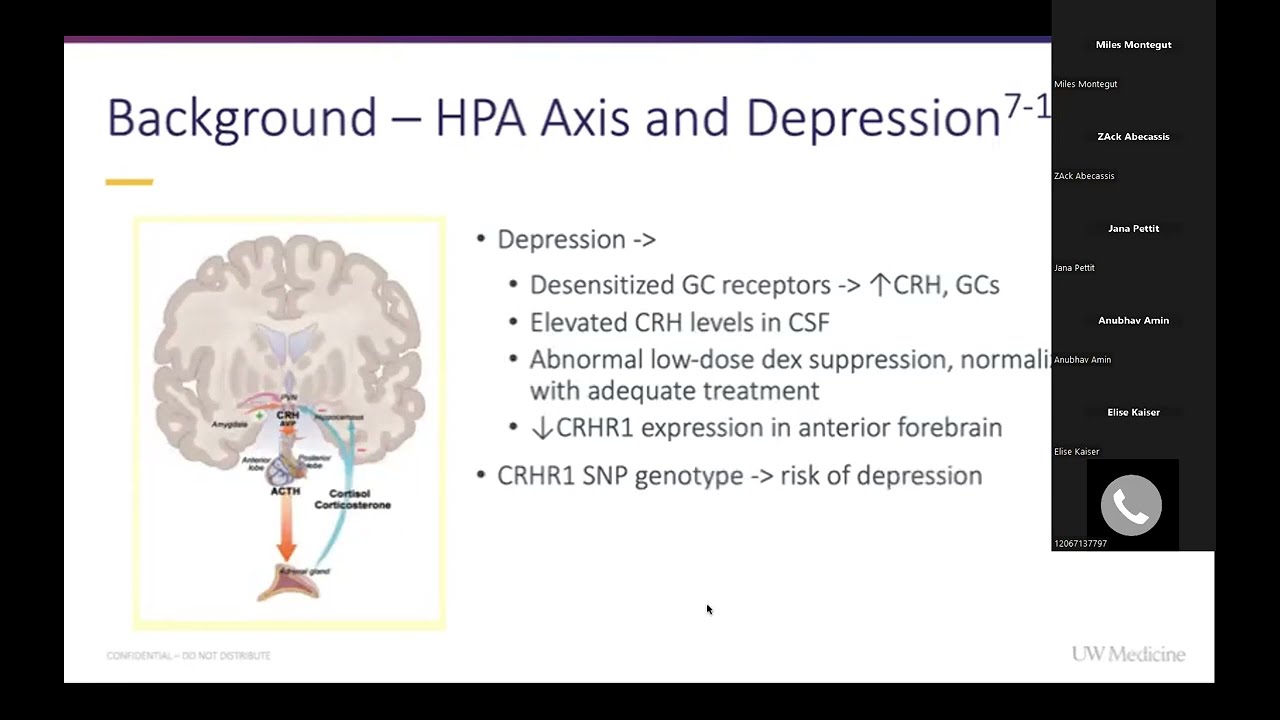3/22/2023 R25 Resident Research Talks
Unleash Your Creative Genius with MuseMind: Your AI-Powered Content Creation Copilot. Try now! 🚀
In a recent presentation, three esteemed research residents, Dr. Kate Carol Graham, Dr. Justin, and Dr. James Tan, shared their groundbreaking findings on the role of genetics in depression after aneurysm rupture. Their research sheds light on the rise of depression in these patients and its profound impact on their quality of life.
Unveiling the Genetic Puzzle
Dr. Carol captivated the audience with her discussion on the role of corticotropin-releasing hormone receptor one genotype in depression after aneurysm rupture. She emphasized the importance of understanding the genetic factors that contribute to depression in order to develop effective treatments.
One fascinating aspect of their research is the use of genetics to identify at-risk populations. By focusing on corticotropin-releasing hormone receptor one polymorphisms, they have discovered that minor alleles may actually be protective against depression and related symptoms. On the other hand, major alleles may increase the risk of depression.
The Stress-Depression Connection
Dr. Justin delved into the intricate relationship between stress and depression. He explained that individuals who are subjected to prolonged stress may become desensitized, leading to increased levels of cortical releasing hormone and glucocorticoids in the cerebrospinal fluid (CSF).
Research has shown that patients with depression often exhibit abnormal low-dose dexamethasone suppression test values, which normalize with treatment. This dysregulation appears to occur at the level of the CRHR1 receptor protein.
Trauma as a Catalyst for Depression
Dr. James Tan shed light on how trauma can act as a catalyst for depression. He explained that genotypes in CRHR1 have been found to be correlated with an increased risk of depression in populations who have experienced trauma.
The pathway linking trauma to depression involves increased stress due to events like aneurysm rupture or stroke, which leads to dysregulation of the HPA axis. This dysregulation may be modulated by reduced BDNF transcription and elevated corticotropin-releasing hormone, potentially at the CRHR1 receptor.
Unraveling the Genetic Impact
To investigate the impact of CRHR1 genotype on HPA axis behavior and the risk of depression after trauma, a single institution observational cohort study has been initiated. The study aims to include 30 adult patients with ventriculostomies, excluding those with poor prognoses or non-

Related Recaps
- Conference Committee on Senate Federal & State Affairs and House Elections 04/04/2023 part 1 of 2
- Charles III: The crowning of Britain's new king
- Title- पूर्व पीएम HD देवगोड़ा ने लोकसभा अध्यक्ष ओम बिड़ला से की मुलाकात #shorts
- RXKNephew "Critical" Directed by @IsaacGarciaFilms
- Мустанг Р-51(США) тест гайд по самолету в игре вартандер